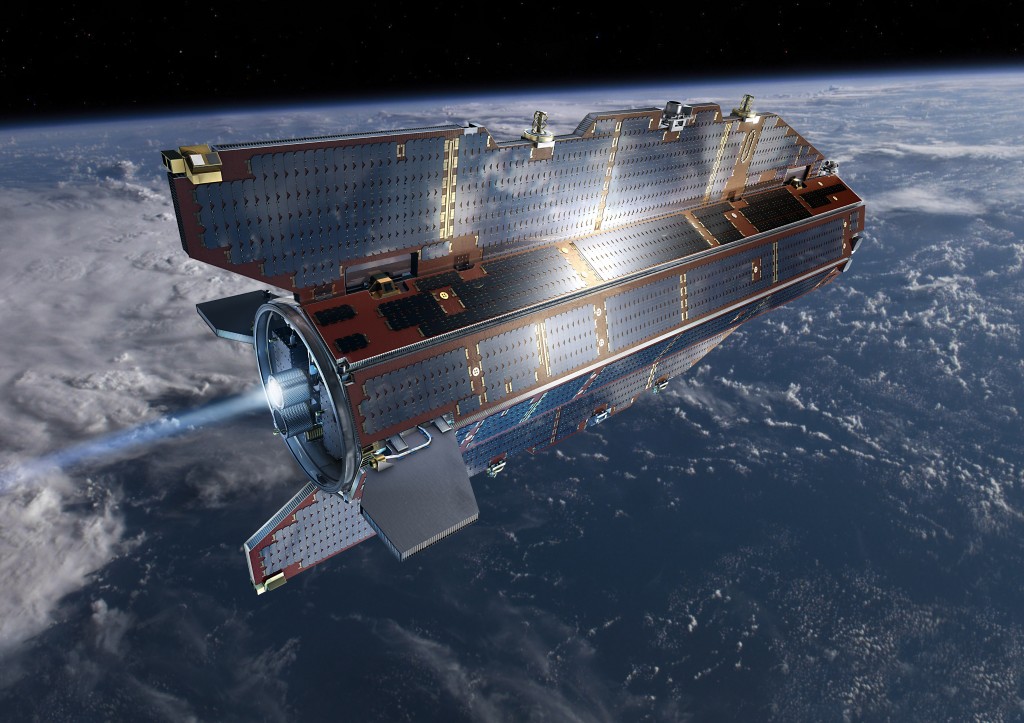Re-entry of GOCE into Earth’s atmosphere is predicted to occur during the night between Sunday and Monday, 10/11 November. Break-up of the spacecraft will occur at an altitude of approximately 80 km.
The estimate is based on the results of detailed analysis, taking in to account a number of changeable factors including spacecraft orientation, the functioning of the attitude control system, as well as solar and geomagnetic activity.

GOCE orbit is so low that it experiences drag from the outer edges of Earth’s atmosphere. The satellite’s streamline structure and use of electric propulsion system counteract atmospheric drag to ensure that the data are of true gravity. Credit: ESA /AOES Medialab
As of this morning, GOCE was at an altitude of roughly 170 km and was expected to sink by more than 8 km within the day.
The Rocket Science blog spoke earlier with Prof Heiner Klinkrad, Head of ESA’s Space Debris Office at ESOC, Darmstadt, Germany.
Q: What do we expect to happen GOCE’s orbit steadily decays?
HK: When the spacecraft reaches altitudes below 100 km, then atmospheric density will drastically increase. Starting with a velocity of about 25 000 km/hour, air drag with the concomitant aerodynamic pressure and heating will cause a break-up of the spacecraft at approximately 80km altitude, causing a large number of fragments.
Q: Do we expect any of these to reach the surface?
HK: Most of these fragments will completely burn up. A small fraction of the initial spacecraft mass – about 20% or 200kg – is expected to reach ground, distributed across dozens of fragments, spread over a sizable re-entry ground swath.
Q: Is there any risk to anyone on ground?
HK: The risk to the population on ground will be minute. Statistically speaking, it is 250,000 times more probable to win the jackpot in the German Lotto than to get hit by a GOCE fragment. In 56 years of space flight, no man-made space objects that have re-entered into Earth’s atmosphere have ever caused injury to humans.
Editor’s Note: An international campaign is monitoring the descent, involving the Inter-Agency Space Debris Coordination Committee (IADC). The situation is being continuously watched by ESA’s Space Debris Office. ESA is keeping its Member States and the relevant authorities permanently updated.


Discussion: 2 comments
winning the German lottery is one thing but being hit by a space object from a grounded satellite is an other thing. A person that simultaneously undergoes such events can neither be called lucky nor unlucky. The events more or less nullify each other. But since the meteorite killed all the dinosaurs with a blow to the head, by jumping from head to head, surfing the whole planet, what can you expect ? We obviously live in a world of great coincidence.
Re-entry of any satellite or space ship from e.g. the ISS or the Moon (Apollo XX) ends with space ship burning up when kinetic and potential energy is transformed into heat. It is in fact impossible to return to Earth. So you should wonder about the ISS.